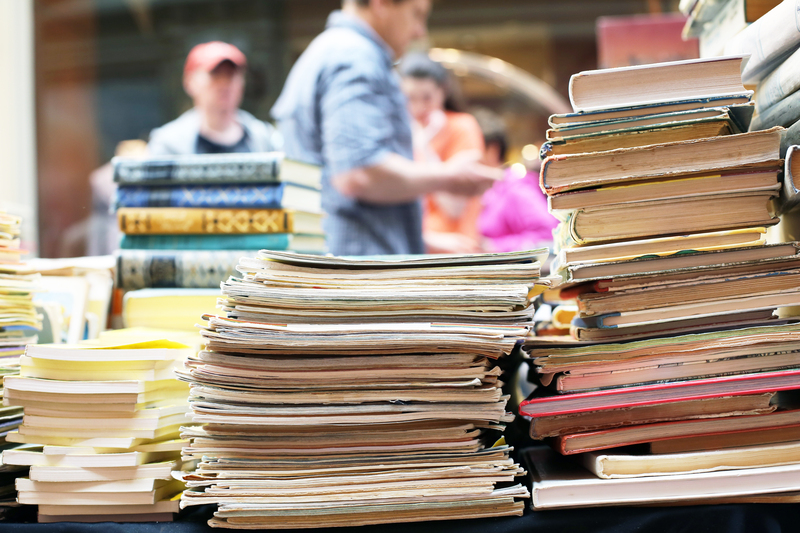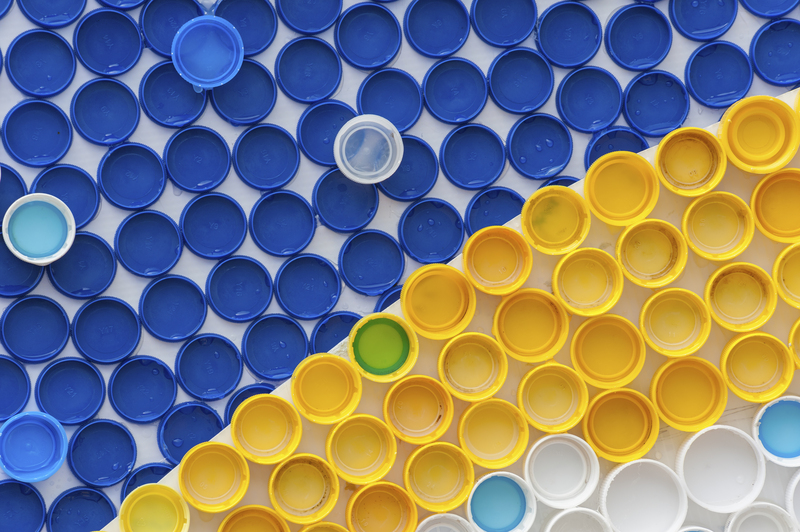Decluttering as a Pathway to Minimalist Living Bliss
Decluttering is more than an occasional spring-cleaning session or organizing your closet; it is a transformative journey towards minimalist living bliss. In today's fast-paced world, clutter often invades not just our physical spaces but also our minds. By embracing decluttering, we open the door to a more intentional, peaceful, and harmonious lifestyle -- the very essence of minimalism. In this comprehensive guide, we explore how decluttering can lead you to the sanctuary of minimalist living, providing tips, benefits, and strategies along the way.
Understanding Decluttering and Minimalism
What is Decluttering?
At its core, decluttering involves removing unnecessary items from your environment to create a cleaner, more organized space. While the process may seem straightforward, decluttering goes beyond mere tidying up; it is about evaluating what adds value to your life and letting go of what doesn't. The journey of decluttering can be transformative, leading to both physical and mental clarity.
The Principles of Minimalist Living
Minimalist living is a lifestyle choice that centers on intentionality and simplicity. It is about curating your possessions and habits so that you are left with only what serves a purpose or brings you joy. The minimalist philosophy encourages us to subtract the non-essential, focusing on what truly matters. At its heart, minimalism seeks to replace excess with fulfillment.
- Intentional living: Making choices based on values, not impulses.
- Quality over quantity: Prioritizing well-made, meaningful possessions.
- Clarity and focus: Letting go of distractions and mental baggage.
- Freedom from consumerism: Breaking the cycle of endless purchases.

How Decluttering Leads to Minimalist Living Bliss
Decluttering and minimalist living are interconnected concepts. Decluttering serves as the starting point, clearing the way for minimalism's deeper benefits. When we embrace decluttering, we initiate a shift not only in our environment but also in our mindset, allowing us to experience the bliss of a minimalist lifestyle.
The Psychological Benefits of Decluttering
- Reduced Stress: A cluttered space can lead to anxiety and overwhelm. Organizing and clearing unnecessary items restores a sense of control and calm.
- Improved Focus: Minimalist spaces support concentration by minimizing distractions.
- Mental Clarity: Decluttering frees up brain space, allowing for clearer thinking and creativity.
- Emotional Release: Letting go of outdated or unwanted possessions can be emotionally liberating, providing closure and a sense of renewal.
The Practical Rewards of Minimalism
- More Space: With fewer things, your home feels more spacious and open.
- Time Savings: Less time spent cleaning, organizing, and searching for lost items.
- Financial Freedom: Minimalism curbs the urge to buy unnecessary things, leading to savings.
- Sustainability: By consuming less, you reduce waste and your environmental footprint.
Steps for Successful Decluttering Toward Minimalist Living
Embarking on your journey toward minimalist bliss begins with practical steps. Here is a comprehensive roadmap to guide you:
1. Set Your Minimalist Intentions
Before touching a single object, reflect on your motivation. Ask yourself:
- Why do I want to declutter?
- What do I hope to achieve through minimalist living?
- What areas of my life feel cluttered or overwhelming?
Writing down your answers can clarify your goals and anchor you through the process.
2. Start Small and Build Momentum
Decluttering an entire home can be daunting. Start with a small area such as a drawer, a nightstand, or a single shelf. Experiencing a quick win will build confidence and motivate you to tackle larger projects.
3. Use the Four-Box Method
- Keep: Items you use regularly or genuinely love.
- Donate: Items in good condition that can benefit others.
- Recycle or Trash: Broken, outdated, or unusable items.
- Relocate: Items that belong elsewhere in your home.
Work systematically, making decisions about each item, and avoid "maybe" piles whenever possible.
4. Let Go with Gratitude
As you release possessions, pause to acknowledge their purpose. Express gratitude for the role an item played in your life before letting it go. This practice, inspired by the KonMari method, can make parting with objects easier.
5. Organize What Remains
Once you've decluttered, thoughtfully organize what you decide to keep. Assign a home for every item, and arrange things in a way that is both accessible and visually pleasing. Remember, the goal is not to create more storage, but to have only what you truly need or cherish.
6. Embrace Mindful Consumption
With a decluttered environment, it's tempting to refill the empty space. Commit to mindful consumption by considering each new purchase carefully. Ask yourself if an item adds genuine value to your life, or if it's likely to become clutter again.
Top Decluttering Strategies for Achieving Minimalist Living Bliss
Different methods work for different personalities. Here are some of the most effective decluttering techniques:
KonMari Method
Marie Kondo's approach involves touching each item and asking, "Does this spark joy?" If not, thank it and let it go. This method focuses on emotional connection and is particularly effective for sentimental people.
Minimalist Game
This fun challenge involves removing one item on day one, two items on day two, and so on for thirty days. By the end of a month, you may declutter hundreds of things!
Swedish Death Cleaning
Originating from Sweden, this approach advocates for organizing and reducing your belongings throughout your life, so loved ones are not burdened later. It prompts a practical and legacy-focused perspective.
One In, One Out Rule
For every new item you bring in, let go of one similar item. This keeps clutter from creeping back in and promotes a balanced minimalism in the long term.
Seasonal Declutters
Set reminders to review areas of your home quarterly. Life changes--so do our needs. Regular check-ins ensure your space stays aligned with your minimalist intentions.
Decluttering: Beyond the Physical
While most conversations about minimalist living bliss start with possessions, true minimalism extends to every aspect of life. Here are some overlooked forms of decluttering:
Digital Decluttering
- Organize your email inbox and unsubscribe from unnecessary lists.
- Delete unused apps and files from your devices.
- Streamline your desktop and cloud storage.
Mental and Emotional Decluttering
- Let go of grudges and old resentments.
- Establish clear boundaries with people who drain your energy.
- Prioritize self-care routines and mindfulness practices.
Calendar and Commitment Simplification
- Evaluate obligations and cancel or delegate those that no longer align with your goals.
- Say no to activities out of guilt or obligation to free up meaningful time.
Overcoming Common Decluttering Challenges
Sentimental Attachments
Letting go of items with emotional significance is often the hardest part of decluttering. Consider keeping a small memory box, or taking photos of cherished items before parting with them. Remember: memories reside in your heart, not in objects.
Fear of Needing Items in the Future
Be realistic about the likelihood of needing something again. If you haven't used it in a year, chances are you can live without it. For rare-use items, consider borrowing or renting instead.
Lack of Motivation or Overwhelm
Enlist a friend or family member as an accountability partner, or reward yourself after finishing a session. Breaking projects into small, manageable chunks helps prevent burnout and discouragement.

Minimalist Living Bliss: Life After Decluttering
The Joy of Simplicity
When you declutter, you make space not just in your home but in your life for what truly matters. Minimalist living brings a sense of bliss rooted in freedom, clarity, and gratitude.
- More Quality Time: With less to clean and organize, you gain precious hours for relationships, hobbies, and passions.
- Space to Breathe: A minimalist home feels light, open, and peaceful, inviting relaxation rather than anxiety.
- Increased Self-Awareness: Regular decluttering hones your understanding of what you value, shaping a life of purpose and intention.
Maintaining Your Minimalist Haven
Minimalism is a journey, not a destination. Schedule regular maintenance--a monthly tidy-up, seasonal closet edits, or digital declutter days--to ensure your space reflects your evolving needs and values. As you continue to declutter, you'll find it easier over time, reinforcing your commitment to minimalist bliss.
Conclusion: Embrace Decluttering for a Blissful Minimalist Life
Decluttering as a pathway to minimalist living bliss is a holistic, rewarding process. It's not about deprivation but about intentional abundance--choosing to surround yourself with only what serves your life's mission and brings you joy. Whether you're reducing physical possessions, simplifying your digital world, or letting go of what no longer serves you emotionally, each act of decluttering brings you closer to the peaceful, intentional life you desire.
Start your journey today: choose one area, set your intention, and take the first step towards minimalist living bliss. The freedom, clarity, and happiness that await you are worth every effort.